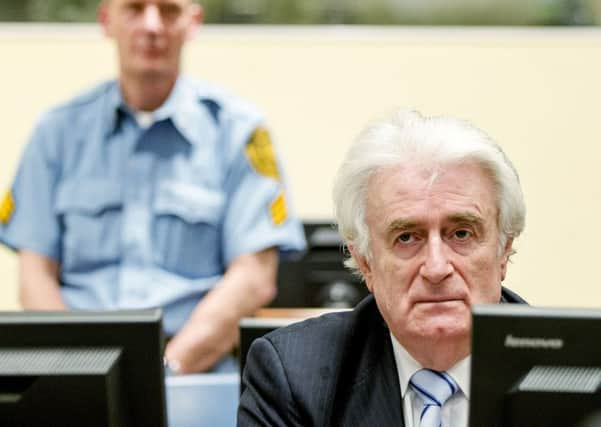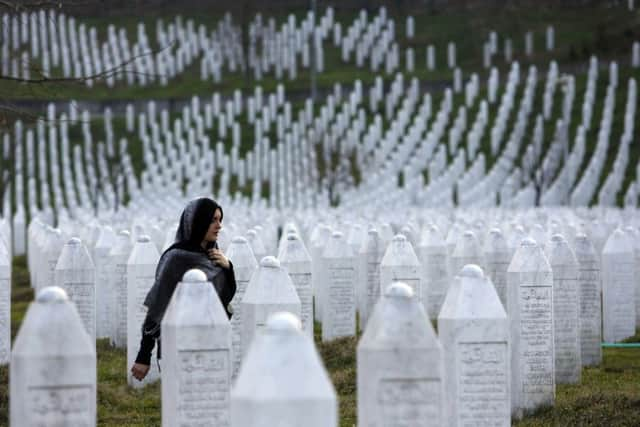Radovan Karadzic sentenced to 40 years for Bosnian genocide


Karadzic is the most-senior political figure to be convicted for crimes committed during the wars that tore Yugoslavia apart some 20 years ago.
The UN court in The Hague found him guilty of ten out of 11 charges, including one of genocide over the massacre of around 7,000 Bosnian Muslim boys and men at the town of Srebrenica in July 1995, the bloodiest single event of the Bosnian war, claiming more than 100,000 lives in total.
Advertisement
Hide AdAdvertisement
Hide Ad“Karadzic was in agreement with the plan of the killings,” said Judge O-Gon Kwon, the presiding judge, as he read the court’s judgement. Standing to hear the judge’s words the grey-haired Karadzic showed little emotion as the guilty verdicts were read out one after another.


• READ MORE: Plans to mark genocide of Muslims at Srebrenica
The court also found him guilty of crimes against humanity for his role in the siege of Sarajevo. The Bosnian capital was surrounded by Serb forces for 1,425 days, during which they subjected the city to artillery and sniper fire, killing an estimated 13,952 people including 5,434 civilians. Karadzic was, however, cleared of another count of genocide relating to deaths in a number of Bosnian towns and regions.
As president of the self-declared Bosnian Serb republic Karadzic oversaw a policy of taking control of other areas of Bosnia and cleansing them of their non-Serb populations. But he always protested his innocence, attributing the murder, rape and ethnic cleansing to ill-discipline and rogue leaders in some of the Serb forces rather than an official policy sanctioned by the Serb leadership.
“The direct perpetrators mainly hid their misdeeds from their immediate superiors at all costs, thus avoiding punishment, and in such cases it wasn’t perpetrated by the official force at all,” he said in an interview with a Serbian news service on Wednesday.


Karadzic also complained that a lot of “war propaganda” had been brought before the court, and claimed that “no reasonable court” would ever convict him.
The guilty verdict was welcomed by Ban Ki-moon, the UN secretary general, who described it as a “historic day for international criminal justice”.
“This judgment sends a strong signal to all who are in positions of responsibility that they will be held accountable for their actions and shows that fugitives cannot outrun the international community’s collective resolve to make sure they face justice according to the law,” Ban said in a statement.
Advertisement
Hide AdAdvertisement
Hide AdIn Serbia some still regard Karadzic as an unwanted reminder of a shameful period in Serb history, while others view him as a hero and a patriot who stood up for the rights of Serbs during a period of violence and confrontation.